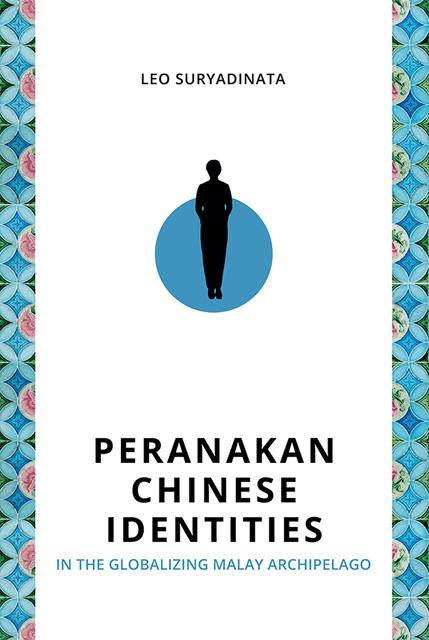Book contents
- Frontmatter
- Contents
- Preface
- Acknowledgements
- Part I Regional Dimensions: Indonesia, Malaysia and Singapore (IMS)
- Part II Focusing on Indonesia
- Appendix 1 The Prospects of the Peranakan Community at the Age of Globalization, by Tan Ta Sen
- Appendix 2 Some Books on the Peranakan Chinese Published between 2007 and 2021
- Bibliography
- Index
- About the Author
5 - Peranakan Chinese in IMS: The Socio-Political Dimension
Published online by Cambridge University Press: 01 September 2023
- Frontmatter
- Contents
- Preface
- Acknowledgements
- Part I Regional Dimensions: Indonesia, Malaysia and Singapore (IMS)
- Part II Focusing on Indonesia
- Appendix 1 The Prospects of the Peranakan Community at the Age of Globalization, by Tan Ta Sen
- Appendix 2 Some Books on the Peranakan Chinese Published between 2007 and 2021
- Bibliography
- Index
- About the Author
Summary
The term Peranakan Chinese has had different meanings throughout the history of the Malay world. However, the degree of Malayness is often used as one of the criteria for the use of this term. In this chapter, I use Peranakan Chinese to mean the local-born Chinese who use a local language, usually Malay, as their home language, although the elite in the past were mainly Dutch- or English-educated. This chapter will examine the socio-political position of the Peranakan Chinese community in Indonesia, Malaysia and Singapore during the colonial period and post-independence, including the era of globalization. From this comparative survey, we will be able to see a variety of Peranakan communities and ascertain their future developments.
It should be noted here that the socio-political position of the Peranakan Chinese, to a large degree, has been determined by both the colonial and independent states. The state policy towards the Chinese minority in general, and the Peranakan Chinese in particular, shaped the Chinese society. In colonial society, the social stratification was based on race, and the Chinese were placed under the Europeans but above the indigenous population. In independent Southeast Asia, with the removal of Europeans from the position of power, the indigenous population raised to the top. The Singapore case is unique as it is a Chinese dominant state and the Chinese are at the top. Nevertheless, as a modern state, Singapore’s social stratification is more inclined to “meritocracy” and class rather than race.
Peranakan Chinese in the Colonial Era
Indonesia
Prior to the nineteenth century, most Chinese migrants were easily absorbed into the Peranakan society as they were small in number. But by the end of the nineteenth century, a larger number of Chinese migrants had arrived in Indonesia, especially Java. These later comers did not integrate into the Peranakan group but remained as totoks and formed a totok Chinese community. The arrival of a large number of totoks also coincided with the rise of overseas Chinese nationalism. The Pan-Chinese organization, Tiong Hoa Hwe (Hwee) Koan (THHK, 中华会馆), which was initiated by the Peranakan Chinese with the support of the totok, was established. It aimed at promoting Confucianism through the establishment of Chinese-medium schools.
- Type
- Chapter
- Information
- Publisher: ISEAS–Yusof Ishak InstituteFirst published in: 2023

